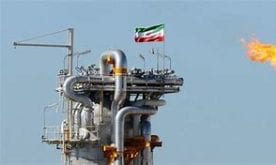RFL/RE – After previously rejecting it, the Iranian Parliament has approved the general outlines of President Hassan Rouhani’s proposed budget bill for the next Iranian year, starting March 21.
In what amounted to a rare incident in almost four decades since the 1979 Islamic Revolution, the parliament had rejected the same bill on January 28.
Earlier, government spokesman Mohammad Bagher Nobakht had cautioned, “Returning the budget bill to the Joint Commission only wastes MPs’ time and conveys a negative message to the public.”
The Reconciliation Commission (comprising representatives from specialized commissions) had been given a 72-hour grace period to work out a better version of the bill.
In the proposed bill, Rouhani had asked for 50 percent hike in the price of fuel, while the commission insisted on keeping the price as it is.
The MPs also rejected Rouhani’s proposal to cut subsidies for millions of Iranians.
The move to preserve direct and indirect subsidies in the budget came after widespread protests a month ago, when tens of thousands of people in nearly 100 Iranian cities and towns came out to voice their frustration with economic hardship, unemployment and corruption.
Parliament Speaker Ali Larijani said on January 31 that by amending the government’s proposal, the parliament was trying to pay subsidies to everyone in need.
Legislators were particularly against the budget’s plan to increase the price of fuel and other resources to generate revenues for job creation and cash handouts, according to the state-run Mehr News Agency (MNA).
Rouhani relented and shelved his proposal to raise the price of fuel.
Of the total 262 lawmakers present during the session, the general outlines of the bill were ratified with 182 votes in favor, 73 against, and six abstentions.
The details of the bill are scheduled to be reviewed by the parliament starting February 3; a process that can take up to two weeks until a final vote.
Based on the amended proposed bill, the parliament has authorized Rouhani’s administration to withdraw up to 50 percent from the hard-currency deposit fund if the government’s income from exporting petroleum decreases.
Another bone of contention between the government and MPs is the allocation of $500 million to Shi’ite seminaries and millions more to institutions led by extremely conservative clergy.
The sum allocated to such institutions, compared with the budget for universities, is so high that it triggered a campaign on social media titled, “Changing the budget in favor of the people,”
Nevertheless, Friday Prayer leaders and representatives of Supreme Leader Ayatollah Ali Khamenei across the country have called for even more money to be allocated to Shi’ite seminaries.
It is not clear yet how this debate will end. Discussion on the details of the budget will show if appropriations for religious purposes are curtailed.
In the new bill, the oil price has been calculated on the basis of $49 per barrel at a rate of one dollar to 36,300 rials. This actually means that the income from oil will buy many more rials, as the actual exchange rate much higher than 36,300 to the dollar.
The ratification comes at a time when U.S. President Donald Trump’s latest comments on the Joint Comprehensive Plan of Action (JCPOA), or Iran’s nuclear deal with world powers, have not yet died down.
Trump declared last month that he would continue sanctions relief for Iran for the “last time” so that the deal could be renegotiated.
 Shabtabnews In this dark night, I have lost my way – Arise from a corner, oh you the star of guidance.
Shabtabnews In this dark night, I have lost my way – Arise from a corner, oh you the star of guidance.


